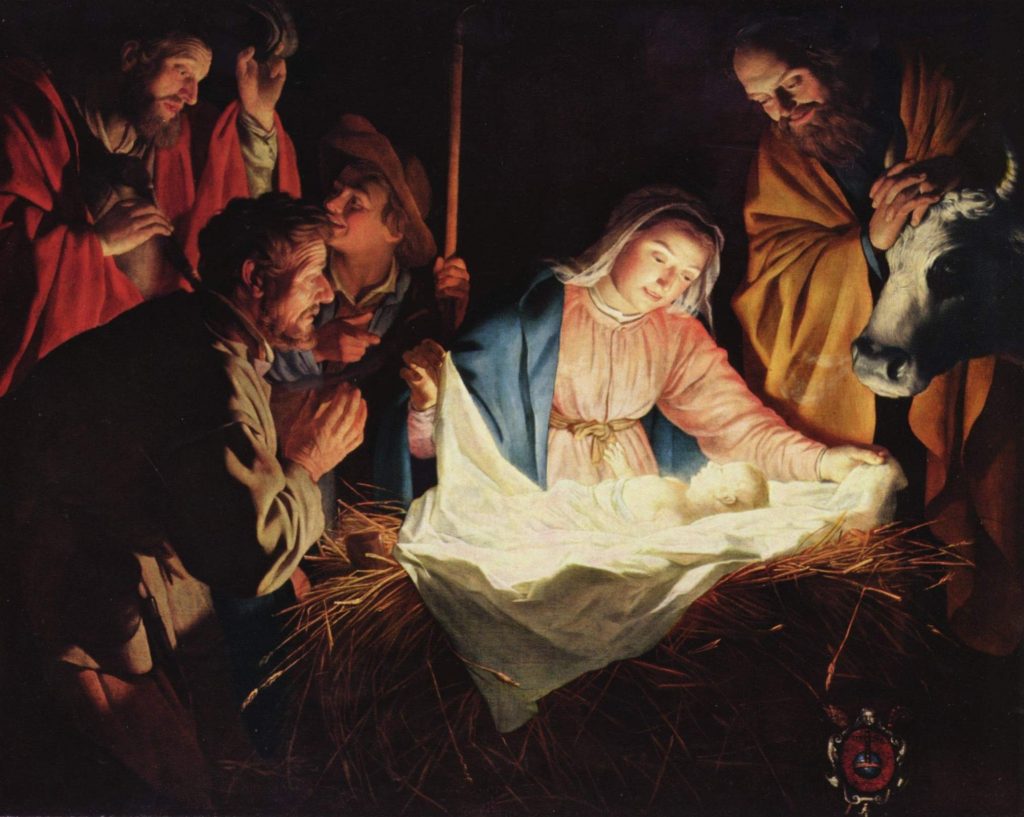Funny how God invariably shatters the containers of our expectations. We have a notion of how God should act, and God ends up acting in a way that shatters all of those expectations and yet fulfills our expectations in a deeper way. That’s certainly true of what happened in Bethlehem at the first Christmas.
For centuries, men and women of faith, aware of their helplessness to rectify everything that’s wrong in life, had been praying for God to come to earth as a Messiah, a Savior, to clean up the earth and right all that’s wrong with it. Exactly how this was to happen was perhaps more of an inchoate longing for justice, a hungry hope, than any kind of clear vision, at least until the great Jewish prophets came along.
Eventually, prophets like Isaiah began to articulate a vision of what would happen when the Messiah came. In these visions, the Messiah would usher in a “Messianic Age,” a new time, when everything would be made right. There would be prosperity for the poor, healing for the sick, freedom from every type of enslavement, and justice for all (including punishment for the wicked). The poor and the meek would inherit the earth because the long-sought Messiah would simply overpower all evil, drive the wicked off the face of the earth, and make all things right.
And after all those centuries of waiting, of longing, what did we get? What did we get? A helpless, naked baby, unable to feed himself. That wasn’t the way anyone expected this to happen. They had expected a superhuman, a superstar, someone whose muscle, intellect, physical stature, invulnerability, and invincibility would simply dwarf all the powers on the planet in a way that there could be no argument, no resistance, no standing against its presence.
That’s still the way, mostly, we fantasize how God’s power should work in our world. But, as we know from the first Christmas, that’s not normally the way God works. What was revealed in Bethlehem is that normally we meet the presence and power of God in our world as a helpless infant lying in the straw, vulnerable, seemingly powerless, touching us subliminally.
Why? Why doesn’t the all-powerful Creator of the universe flex more muscle? Why is God normally revealed more in the body of an infant than in that of a superstar? Why? Because the power of God works to melt hearts rather than break them, and that’s what vulnerability and helplessness can do. That’s what infants can do. God’s power, at least God’s power to draw us into intimacy with one another, doesn’t normally work through might, muscles, and cool (invulnerability).
It works through a lot of things, but it works with a special power through vulnerability and helplessness. Intimacy is predicated on vulnerability. You cannot overpower another person so as to make him or her love you unless you overpower his or her heart the way an infant does. We can seduce one another through attractiveness, draw admiration through our talents, and intimidate one another through superior strength, but none of these will ultimately provide the basis for a shared community of life for long … but the powerlessness and innocence of a baby can provide that.
God’s power, like a baby sleeping in its crib, lies in our world as a quiet invitation, not as a threat or coercion. When Christ took on flesh in our world in Bethlehem 2,000 years ago and then died seemingly helpless on a cross in Jerusalem some 30 years later, this is what was revealed: The God who is incarnated in Jesus Christ enters into human suffering rather than stands clear of it, is in solidarity with us rather than standing apart from us, manifests that the route to glory is downward rather than upward, stands with the poor and powerless rather than with the rich and powerful, invites rather than coerces, and is more manifest in a baby than in a superstar.
But that isn’t always easy to grasp, nor accept. We are often frustrated and impatient with God who, as Scripture tells, can seem slow to act. Jesus promised that the poor and the meek would inherit the earth, and this seems forever belied by what’s actually happening in the world. The rich are getting richer and the poor don’t seem to be inheriting much. What good does a helpless infant do apropos to this? Where do we see messianic power acting?
Well, again the containers of our expectations need to be shattered. What does it mean “to inherit the earth”? To be a superstar? To be rich and famous? To have power over others? To walk into a room and be instantly recognized and admired as being significant and important? Is that the way we “inherit the earth”? Or do we “inherit the earth” when a coldness is melted in our hearts and we are brought back to our primal goodness by the smile of a baby?

